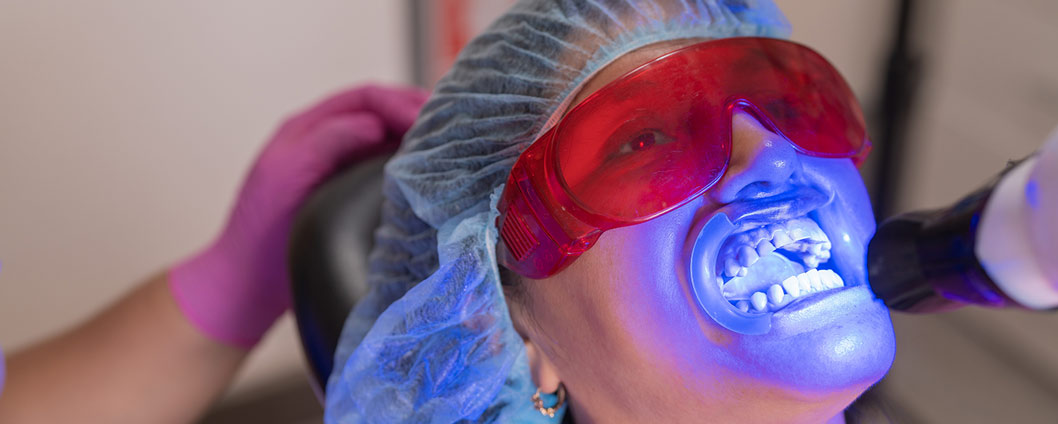The Truth About Teeth Whitening: Separating Fact from Fiction
A bright, white smile is often associated with confidence and good oral health. It’s no wonder teeth whitening is such a popular cosmetic dental procedure. But with so many options available, from DIY kits to professional treatments, it can be difficult to separate fact from fiction. This blog post will delve into the truth about teeth whitening, exploring different options, dispelling common myths, and discussing how to manage tooth sensitivity.
Why Do Teeth Stain?
Before diving into whitening options, it’s important to understand why teeth stain in the first place. Several factors contribute to tooth discoloration, including:
- Extrinsic Stains: These stains affect the enamel’s surface and are caused by external factors like food and drinks (coffee, tea, red wine), tobacco use, and certain medications.
- Intrinsic Stains: These stains originate within the tooth and are often caused by aging, trauma, certain medical conditions, or excessive fluoride exposure during tooth development.
Different Teeth Whitening Options:
- Professional Teeth Whitening: This is the most effective and safest option. Dentists use highly concentrated whitening gels and may use light or laser technology to enhance the whitening process. Professional whitening provides the most dramatic and long-lasting results.
- At-Home Whitening Kits (Dentist-Dispensed): These kits are available from your dentist and contain custom-fitted trays and professional-grade whitening gel. They offer a more controlled and effective whitening experience than over-the-counter options.
- Over-the-Counter Whitening Products: These include whitening toothpaste, strips, gels, and mouthwashes. While they can offer some whitening, the results are typically less dramatic and may take longer to achieve. Use these products with caution, as some can be abrasive or cause sensitivity.
Common Teeth Whitening Myths Debunked:
- Myth 1: All whitening products are equally effective. False. Professional whitening treatments and dentist-dispensed kits are generally more effective than over-the-counter options due to the higher concentration of whitening agents.
- Myth 2: Whitening is a permanent solution. False. While whitening can significantly brighten your smile, the results are not permanent. Staining can recur over time due to lifestyle habits and other factors.
- Myth 3: Whitening damages tooth enamel. While some whitening products can be abrasive or cause sensitivity, professional whitening treatments are generally safe when performed by a dentist. Over-the-counter products should be used with caution and according to the manufacturer’s instructions.
- Myth 4: DIY whitening remedies are safe and effective. False. Many DIY whitening remedies, such as using baking soda or lemon juice, can actually damage your enamel and irritate your gums. It’s best to avoid these methods and stick to professional or dentist-recommended options.
Managing Tooth Sensitivity After Whitening:
Tooth sensitivity is a common side effect of teeth whitening. Here are some ways to manage it:
- Use Sensitivity Toothpaste: Switch to a toothpaste specifically formulated for sensitive teeth. These toothpastes contain ingredient that helps desensitize the nerves in your teeth.
- Avoid Acidic Foods and Drinks: Acidic foods and drinks can exacerbate tooth sensitivity. Limit your consumption of citrus fruits, sodas, and other acidic substances.
- Use Fluoride Products: Fluoride can help strengthen enamel and reduce sensitivity. Use fluoride toothpaste and mouthwash.
- Consult Your Dentist: If you experience significant or persistent tooth sensitivity after whitening, consult your dentist. They may recommend additional treatments or adjust your whitening plan.
Choosing the Right Whitening Option:
The best teeth whitening option for you will depend on your individual needs, budget, and desired results. It’s always best to consult with your dentist before starting any whitening treatment. They can assess your oral health, discuss your goals, and recommend the most appropriate and safe option for you.
Teeth whitening can be a great way to enhance your smile and boost your confidence. By understanding the different options, dispelling the myths, and taking steps to manage sensitivity, you can achieve a brighter, whiter smile safely and effectively. Remember, consulting with your dentist is the first step toward a radiant smile!



